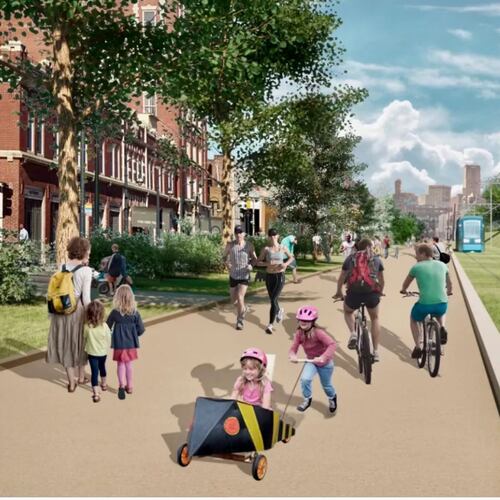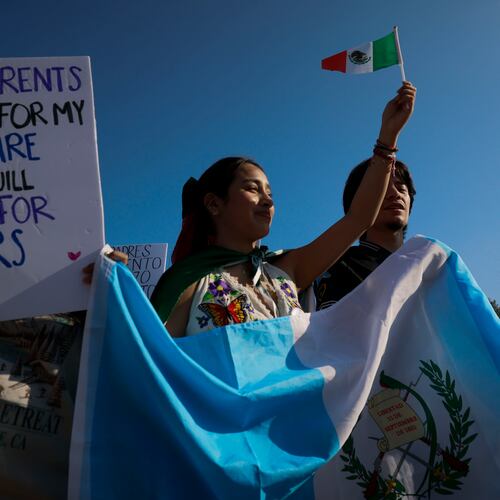For anyone who cares about access to parks and other public outdoor recreational spaces, it has been a whipsaw, rollercoaster last few months.
No sooner did we learn that Atlanta is continuing to climb in national rankings of parks in America’s biggest cities than news broke that parks in Georgia would close due to staff shortages. Now comes word that all but a few of the parks will reopen. At least for now.
Parks aren’t just something nice to have, but rather, something essential to who we are as a nation.
Recently, Trust for Public Land, a national nonprofit dedicated to connecting everyone to the joy and benefits of the outdoors, released its 2025 ParkScore Index, which ranks the park systems in the 100 most populous U.S. cities.
Atlanta made a big jump this year to 21st on the list, rising four spots from last year’s position of 25th. It’s powerful evidence of our continued progress since 2016, when we ranked a dismal 51st. This trajectory is thanks to Atlanta’s commitment to providing access to and investment in parks as essential public infrastructure.
Federal and state funding shortages affect Peach State parks
Credit: hand
Credit: hand
Then the U.S. Army Corps of Engineers announced it was closing 20 parks in Georgia amid President Donald Trump’s federal hiring freeze and elimination of government jobs. People who own homes on Lake Lanier continued to have access but not Georgians more generally. There was an understandable public outcry.
“I’m just disappointed in government. Why would they do this?” The AJC quoted David Pollastro of Forsyth County in a May 21st story. “This is for the common man, the man who doesn’t live on the lake.”
Now, most of the parks that were closed have been reopened through one-year agreements between the Corps and local counties. Under these deals, counties like Forsyth and Hall provide staff and management in exchange for park fee revenue, ensuring continued public access despite ongoing federal budget constraints.
But the federal government is not the only entity cutting funding for parks. In Georgia, the primary state source for funding land acquisition and park creation was cut by $8 million this year when efforts to restore the funding failed in the General Assembly; this cut occurred at a time when the state has a record surplus.
Parks are among the few places left in our society where all people, no matter their age, income or political beliefs, can come together, unplug and enjoy something we all value: nature, connection and space to breathe.
In a new national survey TPL released alongside the ParkScore rankings, 89% of respondents – across the political spectrum – said they visited a public park at least once in the past year. Two-thirds said they have chatted with someone new in a park, one of the few places where that still happens in our polarized society.
So, what to do?
How TPL is working locally to improve park access
In Atlanta, our ParkScore can continue to climb if we invest in more park space, add specific amenities and build new parks in neighborhoods that are missing green space.
Fortunately, there are effective strategies underway. In collaboration with Trust for Public Land, the city’s community schoolyards program transforms Atlanta Public School properties into neighborhood parks after school hours.
Repurposing existing under-utilized public land through the City’s Department of Watershed Management’s innovative green infrastructure program provides usable park space and reduces urban flooding. And, of course, Atlanta continues to expand the Beltline to connect our neighborhoods and parks.
This progress is not guaranteed. Much of the recent growth in park access and investment in Atlanta was made possible by federal funding. As budgets tighten, we risk stalling, or even reversing, the gains we’ve made. That’s why local leadership matters more than ever. City councils, school boards and mayors have the power to ensure that parks remain a priority. And they won’t act unless residents like us demand it.
Now, we are reminded that this responsibility extends to our state and federal recreational spaces. Your elected officials know how important parks are, but they may need a little encouragement to stand up for them. They need to hear from you.
We should be proud of what our parks say about us. They show we care about our kids having a safe place to play, about our elders having a shady spot to sit, and about neighborhoods having room to breathe. They are testaments to our values and blueprints for our future.
Let’s not take them for granted. Let’s keep investing, keep building and keep connecting, so that each of us, and our communities, can be stronger, more resilient, and healthier than ever before.
George Dusenbury is the Georgia state director for the Trust for Public Land.
About the Author
Keep Reading
The Latest
Featured


